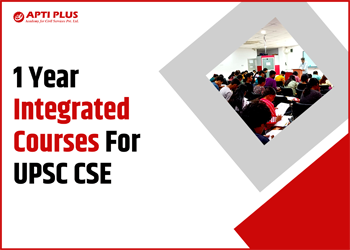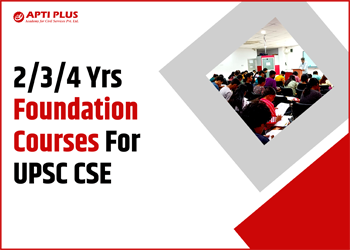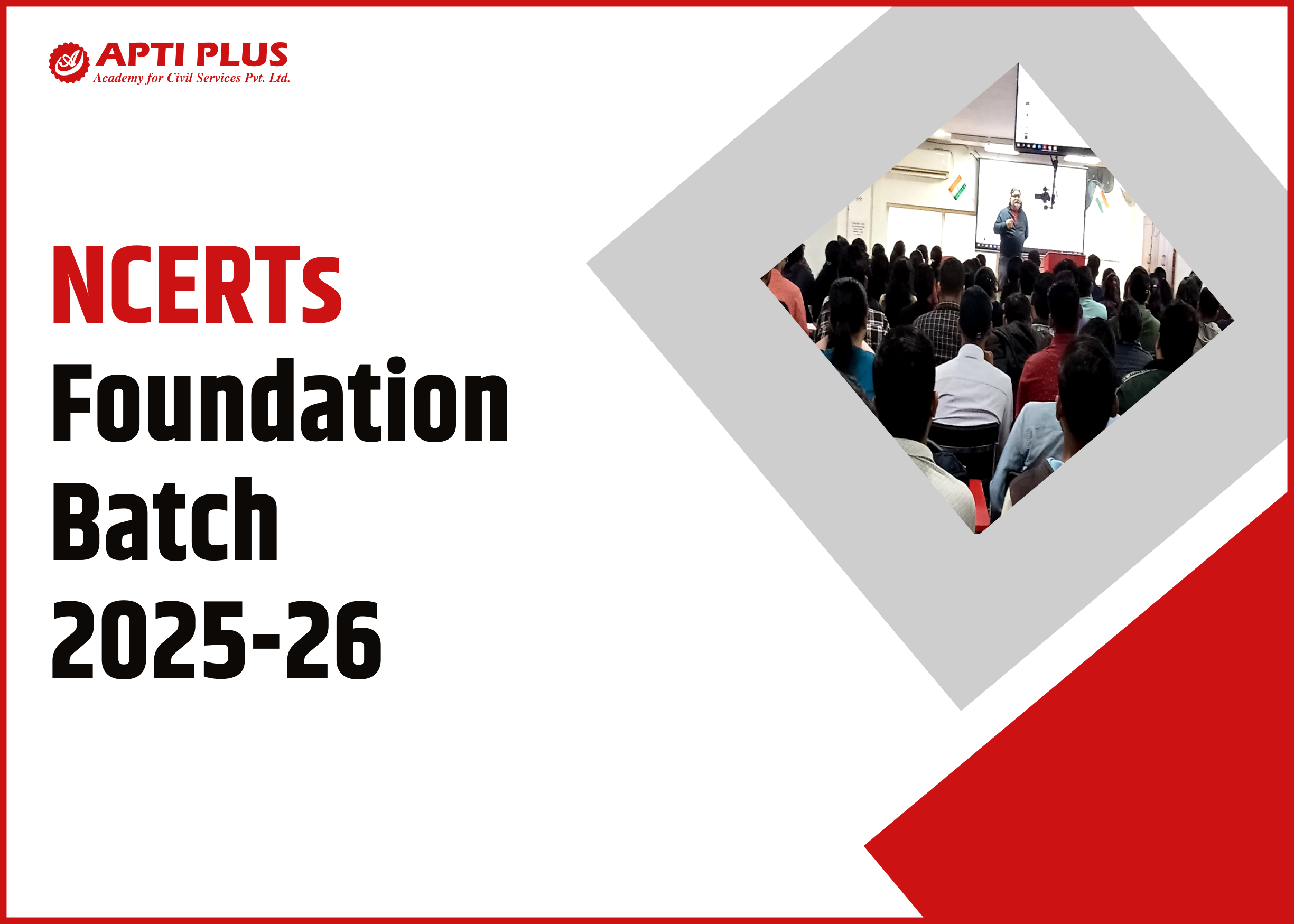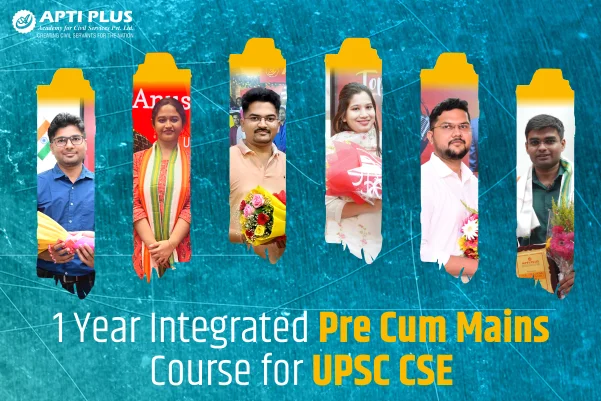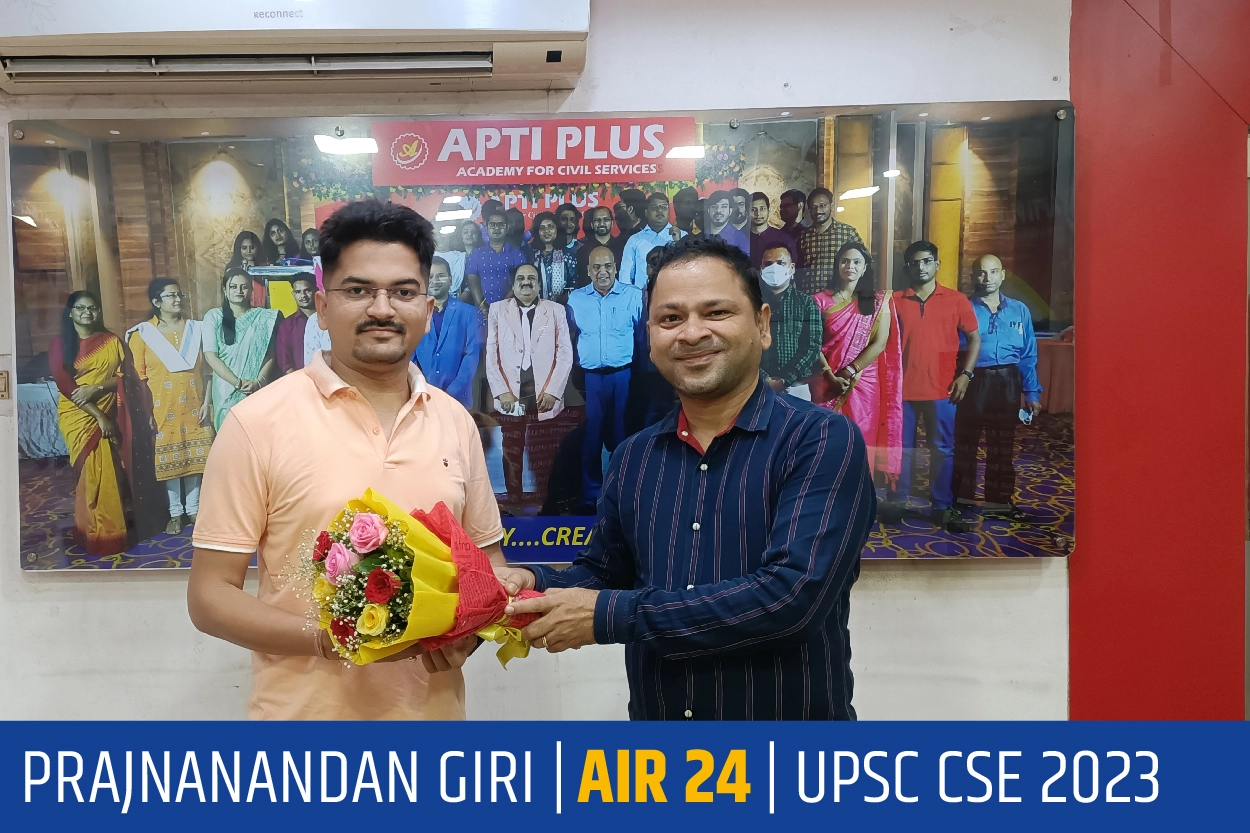Syllabus
Are you embarking on the journey to crack the Civil Services Exam? Great! We at Apti Plus are here to support your every step of the way. Being the best UPSC coaching in India, we offer comprehensive courses and mocks to help aspirants clear the UPSC exam and achieve their dreams.
However, before you start preparing for the exam, it’s necessary to know all about the UPSC syllabus. You’re in the right place to learn all about the UPSC Prelims syllabus and UPSC Mains syllabus.
Read on for UPSC syllabus PDF download, and let’s dissect this roadmap to success together!

UPSC CSE
UPSC Important Date
UPSC Test Series
IAS Syllabus - The Prelims
The IAS Prelims serves as the initial phase of the Civil Services Examination. It is the first stage you’ll have to cross to achieve your dream of becoming a civil servant. The Prelims is an easy paper compared to the Mains; it is of a qualifying nature. So, keep that in mind when you start your studies.
Understanding the Prelims UPSC CSE syllabus is crucial for preparing for the UPSC exam. It acts as a screening test determining a candidate’s qualification for the next stage – the Mains.
Now, let’s have a look at UPSC exam syllabus for the Prelims:
The UPSC Prelims is divided into two sections: the General Studies (GS) Paper-I and the General Studies (GS) Paper II, also known as the Civil Services Aptitude Test (CSAT).
The GS Paper – I include 100 questions and is worth 200 marks. On the other hand, the CSAT has 80 questions and carries 200 marks. You will get two hours for each paper. Candidates should also remember that there is a negative marking. For every wrong answer, one-third of the total marks allocated to the question will be deducted.
Now, coming to the syllabus, here’s what you should know:
GS Paper-I includes Indian Polity, Geography, History, Economy, Science & Technology, Environment, and International Relations. It’s a comprehensive test that covers a wide range of knowledge. While your scores in this paper won’t be added to the final merit list, you must perform well in this exam.
The Civil Services Aptitude Test (CSAT) is usually held between 2:30 PM and 04:30 PM. The UPSC CSAT syllabus is designed to evaluate the candidate’s aptitude in solving ‘Reasoning and Analytical’ questions. It also checks their ability in ‘Reading Comprehension’ and occasionally ‘Decision Making’. It’s worth noting that the ‘Decision Making’ questions typically do not carry negative marks.
CSAT also includes questions related to Data Interpretation and Orders of Magnitude. They include data interpretation charts graphs tables data sufficiency, etc.
What is the Syllabus of UPSC Exam - Mains
- Any Indian Language Paper
- English Language Paper
- Paper – I: Essay Paper worth 250 marks. When writing essays, candidates might need to cover various topics. It’s important to stay focused on the subject, organize ideas systematically, and write in a concise manner.
- Paper-II: General Studies – I— 250 marks. It includes Indian Heritage and Culture and History and Geography of the world. It includes topics like the freedom struggle, post-independence consolidation, great leaders reformers and administrators, lives and teachings of great leaders, etc.
- Paper-III: General Studies – II— This is also worth 250 marks. You can expect topics like the Constitution, Governance, International Relations, Institutional and other Stakeholders, Polity, and more.
- Paper IV: General Studies-III – This paper is also worth 250 marks. It includes subjects like Technology, Economic Development, Biodiversity, Environment, Security, and Disaster Management.
- Paper-V: General Studies – IV—250 marks. The syllabus for this includes Ethics, Integrity & Aptitude. In this paper, you will get questions related to attitude and approach when it comes to integrity, probity in public life, and problem-solving skills. These questions aim to understand how they deal with different issues and conflicts that arise in their interactions with society.
- Paper-VI & VII: Optional Subject Papers—250 marks each for your chosen optional subjects. Once you have cleared the Mains, you will have to take a Personality Test or Interview. Candidates who qualify for the interview will get their names on the final merit list.
Our Exclusive Courses
Take a look at the best courses for IAS preparation. From general studies to optional subjects, these foundational courses cater to all!
Conclusion
Are you preparing for the UPSC exam next year? If yes, consider starting your preparation in February. That’s the perfect time to hit the books, dissect case studies, and decode those data
sufficiency challenges. With a solid year at your disposal, you have plenty of time to hone those concepts and attempt plenty of mock tests!
Good luck!
Frequently Asked Questions
What are the subjects in UPSC syllabus?
The UPSC syllabus covers a wide range of subjects. Key areas include:
– General Studies (Prelims and Mains)
– Optional Subjects (Mains)
– Essay Writing (Mains)
– Indian Language and English (Qualifying Papers)
– Ethics, Integrity, and Aptitude (Mains)
– Optional Papers (Mains)
How can I prepare for UPSC syllabus?
– Begin by thoroughly understanding the UPSC syllabus and exam pattern.
– Devise a well-organized study plan, allocating time for each subject.
– Utilize standard reference books, study materials, and online resources.
– Regularly practice with UPSC previous year question papers and mock tests.
– Focus on current affairs and stay updated with national and international news.
– Develop a habit of effective note-taking for revision purposes.
What are the 9 papers in UPSC mains?
The UPSC mains examination consists of nine papers:
– Paper-A (Indian Language)
– Paper-B (English)
– Essay
– General Studies I
– General Studies II (CSAT)
– General Studies III
– General Studies IV
– Optional Paper I
– Optional Paper II
What are the most important topics to prepare for UPSC CSE?
The importance of topics varies, but focus on:
– Current Affairs (national and international)
– Indian Polity and Governance
– Indian Economy
– History and Culture of India
– Geography (Physical, Human, and World)
– Environment and Ecology
– Science and Technology
– Ethics, Integrity, and Aptitude
– Optional Subject Topics (Mains)

